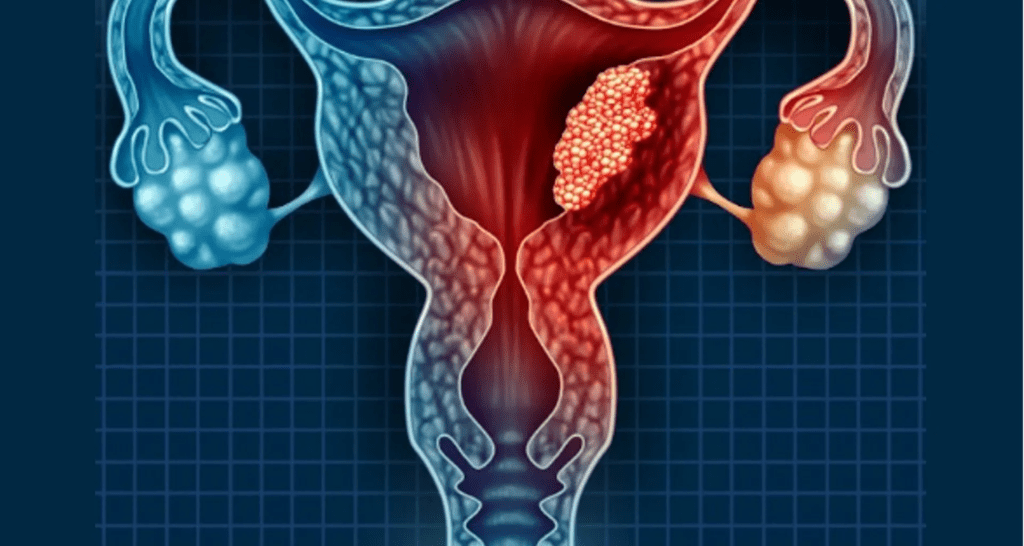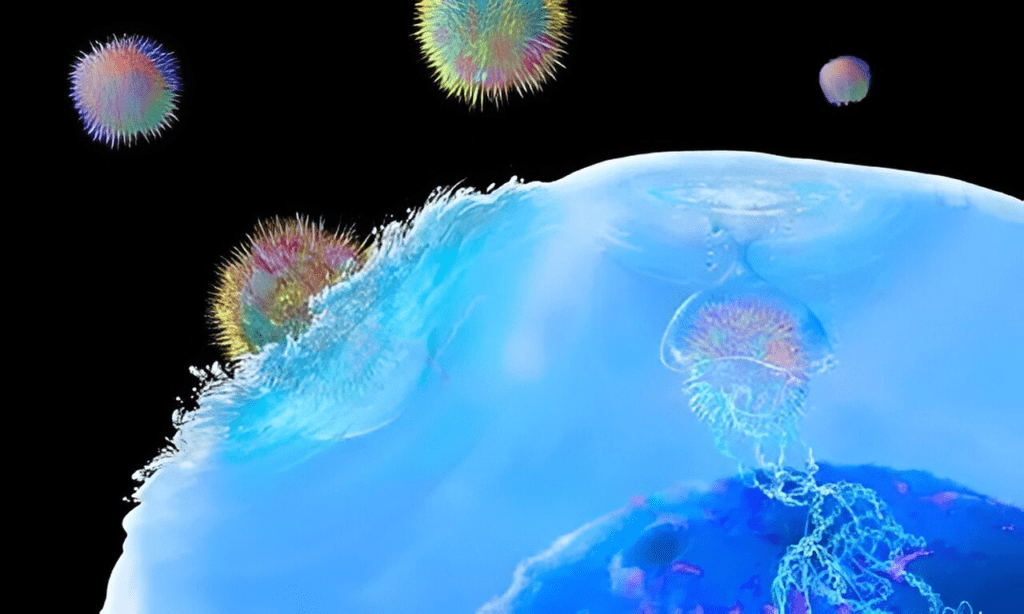
Can Cervical Cancer Be Cured? Understanding Survival Rates and Treatment Success
by jusonco.com | Jul 25, 2025 | Blogs
Cervical cancer remains one of the most preventable forms of cancer, yet it still affects millions of women worldwide every year. According to the World Health Organization (WHO), cervical cancer is the fourth most common cancer among women, with high rates in developing countries due to lack of awareness, screening, and access to medical care. Early detection through routine screening, such as the Pap smear test, plays a vital role in lowering the risk of developing advanced cervical cancer.
This article will delve into the question, “Can cervical cancer be cured?”, providing insights into the various treatment methods, survival rates, the role of early detection, and the potential for a cure.

Understanding Cervical Cancer
Cervical cancer originates in the cells of the cervix, the lower part of the uterus that connects to the vagina. It is most often caused by persistent infection with high-risk types of the human papillomavirus (HPV). While HPV is a common virus and usually does not cause harm, certain strains can lead to abnormal cell changes that may eventually result in cancer.
The development of cervical cancer generally occurs in stages:
- Stage 1: The cancer is confined to the cervix.
- Stage 2: Cancer spreads beyond the cervix but not to the pelvic wall or lower part of the vagina.
- Stage 3: Cancer spreads to the pelvic wall and may affect the lower part of the vagina.
Stage 4: Cancer has spread to distant organs, such as the bladder, rectum, or other parts of the body.
Looking for affordable cancer care?
At Jus’ Onco Clinic, we offer expert treatment options tailored to your needs, ensuring compassionate care at every step.
Can Cervical Cancer Be Cured?
The potential for curing cervical cancer depends largely on the stage at which it is diagnosed. Like many cancers, early detection significantly increases the chances of successful treatment and cure.
- Early-Stage Cervical Cancer:
When cervical cancer is detected early, it is highly treatable and often curable. If the cancer is confined to the cervix (Stage 1), treatment options may include surgery, radiation therapy, and sometimes chemotherapy. Surgical options may involve a hysterectomy (removal of the uterus), which can cure the cancer if it has not spread beyond the cervix. In some cases, less invasive treatments, such as a cone biopsy or LEEP (loop electrosurgical excision procedure), may be performed to remove the cancerous tissue while preserving the uterus. - Advanced Cervical Cancer:
If cervical cancer has spread beyond the cervix (Stages 2–4), the chances of a cure become significantly lower. However, treatment can still be effective in controlling the cancer, improving quality of life, and extending survival. Advanced stages of cervical cancer are generally treated with a combination of chemotherapy and radiation therapy, and sometimes targeted therapies. For Stage 3 or 4 cervical cancer, surgery may not always be an option, but patients can still benefit from other treatments that can prolong life and relieve symptoms.

Survival Rates of Cervical Cancer
Survival rates for cervical cancer vary depending on the stage at diagnosis and the effectiveness of treatment. The five-year relative survival rate for cervical cancer is an important statistic used to assess how many people survive at least five years after their diagnosis. According to the American Cancer Society, the survival rates for cervical cancer by stage are:
- Stage 1: The survival rate for early-stage cervical cancer is about 92%. With early detection and treatment, many women can be cured at this stage.
- Stage 2: The survival rate for women with Stage 2 cervical cancer drops to around 58–63%, but treatment success is still achievable.
- Stage 3: At Stage 3, the survival rate falls to approximately 35–40%, as the cancer has spread to surrounding tissues and organs.
- Stage 4: The survival rate for Stage 4 cervical cancer is significantly lower, around 15-20%. This stage typically indicates that the cancer has spread to distant organs.
It is important to note that these statistics are averages and do not necessarily reflect an individual’s prognosis. Many factors, such as age, overall health, the type of cervical cancer, and how well the body responds to treatment, can all influence survival outcomes.
Treatment Success and Advances in Cervical Cancer Care
While early detection and treatment significantly increase the chances of a cure, the treatment landscape for cervical cancer has evolved, leading to better outcomes for women diagnosed with the disease.
- Surgical Advances:
Surgical treatment for cervical cancer has seen significant improvements, with minimally invasive options such as robotic-assisted surgeries allowing for shorter recovery times, less pain, and better overall outcomes. In cases where the cancer has not spread beyond the cervix, surgeries such as radical hysterectomy are often performed with high success rates. - Radiation Therapy:
Radiation therapy is commonly used in conjunction with surgery for treating cervical cancer. Newer techniques, such as intensity-modulated radiation therapy (IMRT) and stereotactic body radiotherapy (SBRT), have increased precision and reduced side effects, allowing radiation to target the tumor more effectively while sparing surrounding healthy tissue. - Chemotherapy:
Chemotherapy drugs are often used to kill cancer cells or shrink tumors, especially in advanced-stage cervical cancer. Carboplatin and paclitaxel are among the most commonly used chemotherapy agents. In some cases, chemotherapy is combined with radiation therapy (chemoradiation) to increase effectiveness, especially in advanced stages. - Immunotherapy and Targeted Therapy:
Research into immunotherapy and targeted therapies for cervical cancer is ongoing, with promising results. Drugs like nivolumab (Opdivo) have shown success in treating recurrent cervical cancer by stimulating the body’s immune system to attack cancer cells. Targeted therapies aim to block specific pathways or proteins that cancer cells use to grow, offering an additional treatment option for certain types of cervical cancer.
Prevention and Early Detection:
While treatment for cervical cancer is highly successful in its early stages, prevention remains key. The HPV vaccine is one of the most effective tools in preventing cervical cancer, as it protects against the strains of HPV that cause the majority of cervical cancers. Regular Pap smears and HPV tests are also essential for early detection. Women who undergo regular screening have a much better chance of detecting abnormal cells before they turn into cancer.
Conclusion: Can Cervical Cancer Be Cured?
Cervical cancer can indeed be cured, particularly if it is diagnosed early. The key to curing cervical cancer lies in routine screening and early intervention. Women who receive regular screenings and, if necessary, the HPV vaccine, can reduce their risk of developing cervical cancer and catch it at a treatable stage.
For women diagnosed with advanced cervical cancer, modern treatments such as surgery, radiation therapy, chemotherapy, and emerging therapies offer hope and improved survival rates. Ongoing research into immunotherapy and targeted treatments holds promise for further improving outcomes and extending survival for those with advanced stages of the disease.
Ultimately, while the possibility of a cure depends on the stage of diagnosis and the treatment plan, cervical cancer is highly treatable, especially when caught early. Women are encouraged to stay informed, seek regular screenings, and discuss prevention and treatment options with their healthcare providers.
Looking for affordable cancer care?
At Jus’ Onco Clinic, we offer expert treatment options tailored to your needs, ensuring compassionate care at every step.
Frequently asked Questions
1. Can cervical cancer be cured completely?
Yes, cervical cancer can be cured—especially when detected at an early stage (Stage 1). Early intervention through surgery, radiation, or chemotherapy offers high chances of full recovery.
2. What is the survival rate of cervical cancer in India?
Survival rates vary by stage. Early-stage cervical cancer has a 90%+ 5-year survival rate. For advanced stages, survival drops, but treatment can still prolong life and improve quality.
3. What are the main treatment options for cervical cancer?
Treatment includes surgery (hysterectomy), radiation therapy, chemotherapy, and, in advanced cases, immunotherapy or targeted therapy. Your treatment depends on the cancer stage and your overall health.
4. Is the HPV vaccine effective in preventing cervical cancer?
Absolutely. The HPV vaccine protects against high-risk HPV strains responsible for most cervical cancers. It’s most effective when given before sexual activity begins, typically between ages 9–26.
5. How often should women get screened for cervical cancer?
Women should begin Pap smear screening from age 21 and repeat every 3 years. HPV tests are also recommended, and frequency may vary based on age and previous results.


